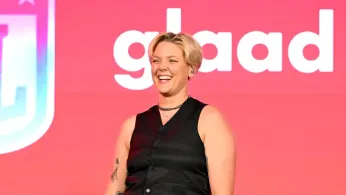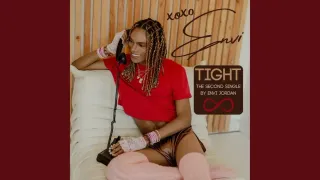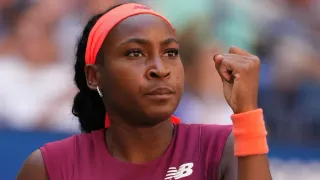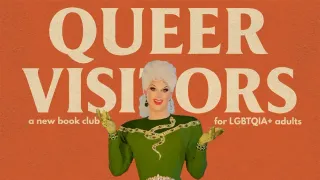
10 hours ago
Betty Who Issues Apology After Backlash Over Comments on Reneé Rapp’s Sexuality
READ TIME: 3 MIN.
Australian pop artist Betty Who, known for her advocacy and visibility as a queer woman in the music industry, found herself at the center of controversy following comments about Reneé Rapp’s sexuality on the August 19 episode of “Made It Out,” a lesbian-focused podcast hosted by Mallorie Glownke. The conversation, intended to explore the complexity of labels and relationships among queer women in music, quickly ignited backlash across social media and LGBTQ+ spaces due to remarks perceived as dismissive of lesbian identity and experiences .
During the discussion, Glownke referenced Jojo Siwa and Fletcher, both sapphic artists with significant queer female followings, who had recently disclosed relationships with men. When the topic shifted to Reneé Rapp, Betty Who commented on Rapp’s public stance about dating, saying, “As much as it’s funny that Reneé Rapp is like, ‘You’ll never catch me dating a man.’ It’s like, ‘Go off, queen! I love that for you.’ But I also hold space for her in 10 years if she goes, ‘Oops, I met the love of my life and it’s this man, I didn’t mean to.’ It’s like, that’s okay!” .
Many listeners, particularly lesbians and those invested in lesbian visibility, interpreted these comments as undermining or erasing lesbian identity, and accused Who of “lesbophobia”—a term used to describe prejudice or exclusion directed specifically at lesbians, including from within the broader LGBTQ+ community .
The reaction on social media was swift. Many users, including LGBTQ+ activists and ordinary fans, criticized Betty Who for what they perceived as a minimization of Rapp’s lesbian identity and a reinforcement of harmful stereotypes that lesbians will eventually end up with men or aren’t “truly” lesbians. Commentators pointed out that such narratives have historically contributed to bi erasure, lesbophobia, and the policing of sexual identity boundaries—issues that remain deeply sensitive within the community .
Some defenders of Who’s comments argued that her intention was to express acceptance and flexibility for people whose identities or experiences may evolve over time. However, the overwhelming consensus among critics was that the phrasing and context reinforced problematic tropes and failed to acknowledge the specific pressures and invalidations faced by lesbians .
On August 28, Betty Who addressed the controversy in a public apology posted to her Instagram Stories. She wrote, “In recent days, I've taken time to listen to the feedback from the queer community regarding my comments on the 'Made It Out' podcast. I recognize that my words were hurtful and contributed to a narrative that has been used to invalidate lesbian identity. For that, I am deeply sorry. The LGBTQ+ community is my home; it’s where I came alive, found my people, and learned more about love, acceptance, and tolerance on a deeper human level. I will do better” .
She further emphasized her respect for all labels and identities within the LGBTQ+ spectrum and reaffirmed her commitment to using her platform responsibly and inclusively. Her apology was met with a mixture of appreciation and continued calls for education on the nuances of intra-community bias and the importance of centering marginalized voices—especially those of lesbians and other sapphic individuals .
The incident has reignited conversations about the complexities of queer identity, the function of labels, and the need for ongoing education and dialogue about intra-community prejudice. While bisexual and pansexual people—like Betty Who herself—face unique challenges regarding erasure and validity, lesbians have also been subject to persistent invalidation, often through subtle or overt suggestions that their identities are phase-like or subject to change.
Advocates note that high-profile incidents such as this can serve as teachable moments and underscore the importance of intersectionality in LGBTQ+ conversations. “Labels matter because they are a way for people to assert their realities in a world that often denies them,” said one social media commenter in response to Who’s apology. “But so does respecting the boundaries of those labels, especially for those who have fought so hard for recognition.”
The episode also highlights the responsibility of public figures—especially within marginalized communities—to be mindful of the impact their words can have, and to remain open to feedback and growth. As more LGBTQ+ artists gain visibility in mainstream media, the stakes around representation and respect for the diversity of experience within the community continue to rise .
For many, Betty Who’s response—acknowledging harm, apologizing without qualification, and committing to do better—sets an important example for handling missteps. The ongoing dialogue reminds all LGBTQ+ individuals and allies of the importance of solidarity, mutual respect, and the continuous work required to make the community truly inclusive.






